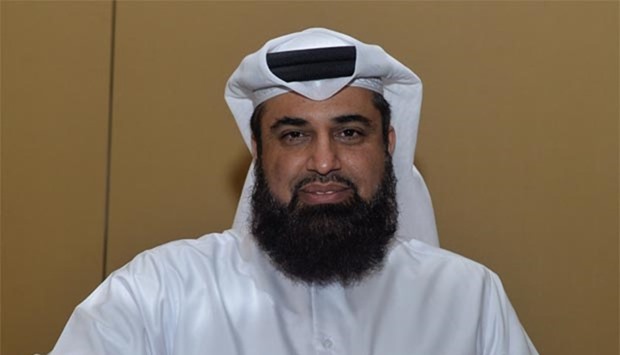“Several leading pharmaceutical companies are working in this regard under the guidance of the World Health Organisation (WHO),” Dr. Mohamed Mohamed al-Hajri, director of emergency preparedness and response department, MoPH, told Gulf Times on Sunday.
“We had several meetings with WHO and a number of major pharmaceutical companies," he explained on the sidelines of a training programme on communicable diseases, organised by MoPH and Institute Pasteur.
"They are doing some research in vaccine and the treatment. There is good progress in both the areas. The expectation from the presentations in the meetings we had with these companies is that a vaccine for the disease may be available by the end of 2017 and scientific treatment some time in 2017,” he said.
Dr al-Hajri observed that the vaccines are produced based on some criteria from the economic point of view. “The production of a vaccine will take months or years. If it is not going to be used extensively, it is not worth for a pharmaceutical company. WHO is playing a major role in assessing the need, demand and how to have a balanced approach in making the vaccines available,” he continued.
According to the MoPH official, the research and discussions are going on with WHO playing a major role in this regard. “There will be some updates soon about the progress as every six months there is a meeting with WHO involving the affected countries and the pharmaceutical companies in terms of the progress of the vaccine, the need for it and the situation of the disease and other details. It is ongoing and we will have some updates soon,” he pointed out.
Dr al-Hajri highlighted that Qatar was one of the first countries to do research on Mers CoV in collaboration with some of the leading research organisations around the world.
“Corona virus was new and there was no treatment known, no preventive methods as well as no diagnosis and medicine. So we did some research about it by collecting samples and sent them to specialised centres around the globe and collaborated with WHO.
“We also brought experts here to assist us in the situation. We collaborated with several leading research institutes from countries such as the US, the Netherlands and England. Those teams investigated the cases which led to discoveries. We were the first to isolate the virus in the labs with the help of researchers from the Netherlands,” he recalled.
“The viruses were isolated and reproduced for research in the Erasmus Research Institute, Netherlands, which was a great achievement. We are still in the research to know more about the disease and try to understand the original source of the disease. We have also understood that birds, goats and cows do not transmit the disease as of today,” Dr al-Hajri added.
“We had several meetings with WHO and a number of major pharmaceutical companies," he explained on the sidelines of a training programme on communicable diseases, organised by MoPH and Institute Pasteur.
"They are doing some research in vaccine and the treatment. There is good progress in both the areas. The expectation from the presentations in the meetings we had with these companies is that a vaccine for the disease may be available by the end of 2017 and scientific treatment some time in 2017,” he said.
Dr al-Hajri observed that the vaccines are produced based on some criteria from the economic point of view. “The production of a vaccine will take months or years. If it is not going to be used extensively, it is not worth for a pharmaceutical company. WHO is playing a major role in assessing the need, demand and how to have a balanced approach in making the vaccines available,” he continued.
According to the MoPH official, the research and discussions are going on with WHO playing a major role in this regard. “There will be some updates soon about the progress as every six months there is a meeting with WHO involving the affected countries and the pharmaceutical companies in terms of the progress of the vaccine, the need for it and the situation of the disease and other details. It is ongoing and we will have some updates soon,” he pointed out.
Dr al-Hajri highlighted that Qatar was one of the first countries to do research on Mers CoV in collaboration with some of the leading research organisations around the world.
“Corona virus was new and there was no treatment known, no preventive methods as well as no diagnosis and medicine. So we did some research about it by collecting samples and sent them to specialised centres around the globe and collaborated with WHO.
“We also brought experts here to assist us in the situation. We collaborated with several leading research institutes from countries such as the US, the Netherlands and England. Those teams investigated the cases which led to discoveries. We were the first to isolate the virus in the labs with the help of researchers from the Netherlands,” he recalled.
“The viruses were isolated and reproduced for research in the Erasmus Research Institute, Netherlands, which was a great achievement. We are still in the research to know more about the disease and try to understand the original source of the disease. We have also understood that birds, goats and cows do not transmit the disease as of today,” Dr al-Hajri added.


